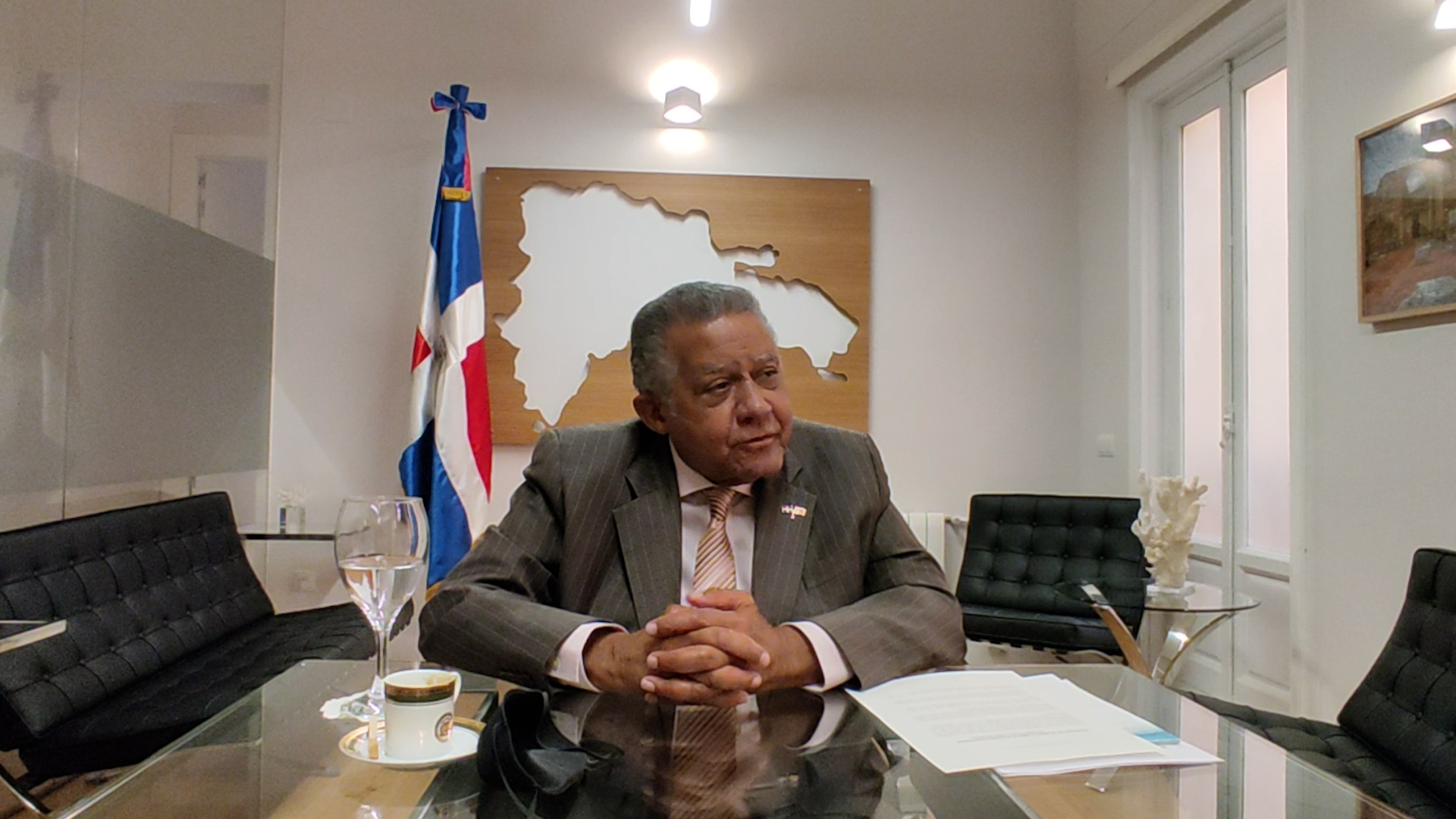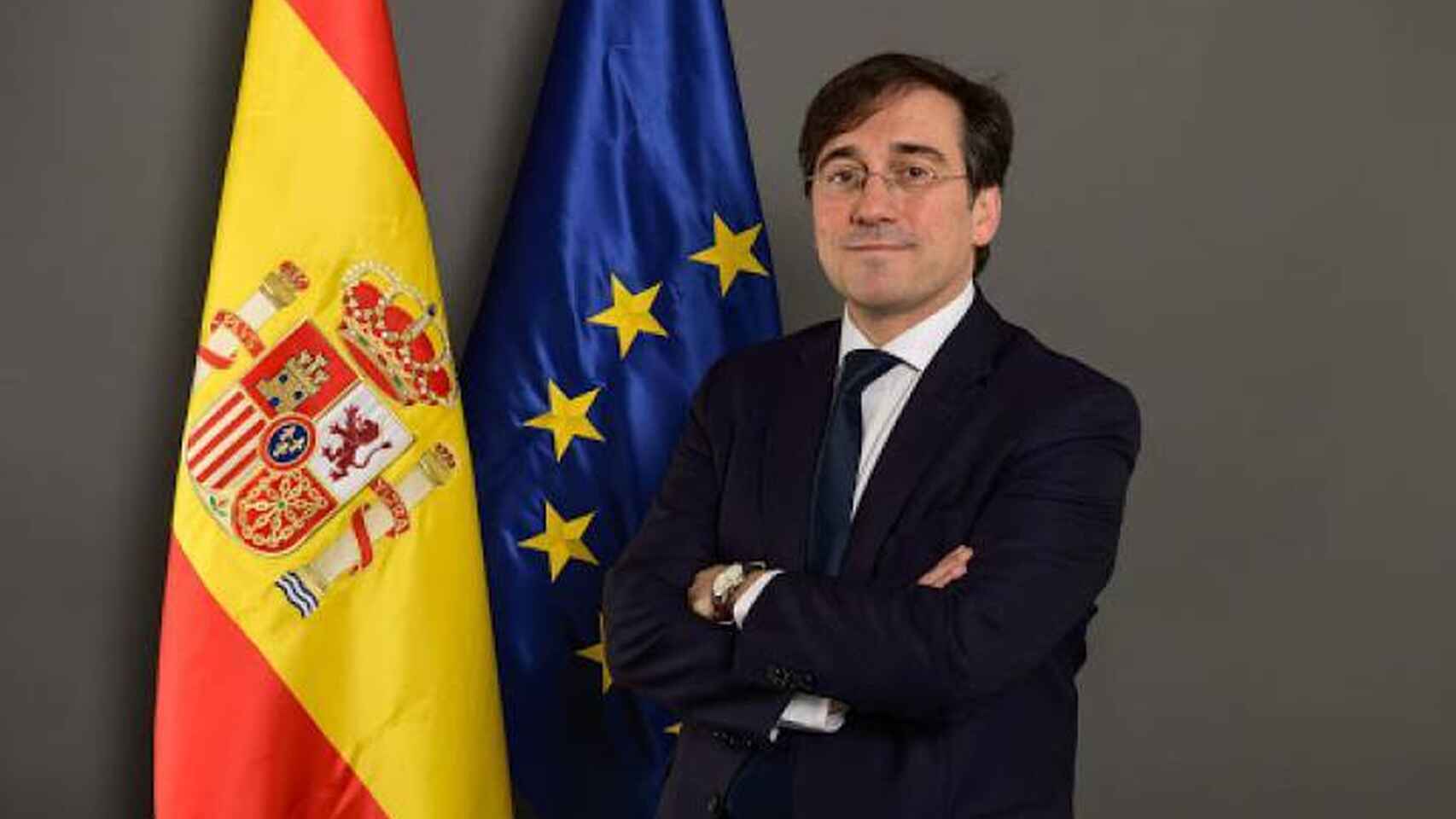Juan Bolívar Díaz
Dominican Republic’s Ambassador
Javier Socastro
The ambassador of the Dominican Republic, Juan Bolívar Díaz, recounts during his interview for the YouTube channel of The Diplomat in Spain how after his 52 years as a journalist, his time to slow down has come and help his fellow citizens as an ambassador in Madrid.
You have a brilliant career as a journalist, how did you become diplomatic?
I have 52 years of work in the world of journalism. I have led a daily television program in which I was the director of the program and the news. Also, I was one of the interviewers and commentators for the newscast. And for a long time, I have written entire weekly columns for newspapers.
That is, I had a very intense exercise, and after so many years, my moment of television retirement arrived. Years do not forgive, and I did not want people to see me and say “look at the old man who is staying there.”
Everything has a moment in life. Also, I believe in generational change. We have to leave space for the new generations. Also, I deserved to take a little more peace of mind in my professional life.
Spain as a diplomatic destination gives more work than I thought. Perhaps, if I had known, I would have reconsidered. But the truth is that I have a special devotion to Spain and Spanish history.
So, for me, coming to Spain was like giving me a little satisfaction. Although, I don’t plan to keep the position for long.
At the end of July, more than half of the population was fully vaccinated Are you happy with how the health situation in the country is progressing?
The Dominican government bet strongly with its first decisions. It understood from the beginning that the pandemic was a big challenge. The president, Luis Abinader, stated after being elected that “he came to manage a crisis.”
This is a very serious crisis that has hit the economy very hard. Saving tourism and all the people who live off it depended on recovering as soon as possible. So, the government focused a lot on it and a lot of money was invested.
One of the most important decisions made was to understand that European vaccines were delaying too much, so we quickly turned to the Chinese vaccine. That was a vaccine which at that time the WHO had not yet approved it. Although it did later. Therein lies one of the great successes of the Dominican government.
We are happy. We are among the three or four countries that have made the fastest progress in vaccination.
How are the levels of tourism in the Dominican Republic?
As I mentioned, such an effective management of vaccination has had excellent results both in the level of infections and in tourism. The incidence of this disease has fallen, reaching zero deaths per day on many occasions.
The same happens with infections, which are currently around 300 per day. Hospital occupancy is around 20%, the lowest percentage since the pandemic arrived.
In result, tourism has shown surprising advances.
Much effort has been invested in taking care of the health of all tourists. For example, with health insurance that the government guaranteed 100% of visitors, at zero cost. Basically, if they got sick, they didn’t have to pay anything.
In addition, in the first stage of vaccination, priority was given to tourist regions, such as Punta Cana, a province that declared itself 100% immunized several weeks ago. Regardless of age, workers in hotels, airports, etc. were vaccinated as a the main priority.
All this has caused that, only from January to July of this year, 2,470,000 visitors have already arrived, almost 50% of the total flow we received in 2019. Furthermore, for now, this year the level of tourism gets higher month after month.
Has the Dominican Republic learned any lessons from the economic and health crisis caused by the pandemic?
I think there are two lessons to be learnt.
Humanity must have learned that nature is charging humans for the ecological disaster we have made. We are certainly killing the Earth and this pandemic is linked to that fact.
And second, that we need to develop health systems that are capable of giving better responses than those we had in the first stages. Even developed countries had trouble giving an effective health response.
We have demonstrated that we have insufficient investment for these types of problems. And that is particularly critical for economies that are fragile and dependent on foreign tourism.
How are the current relations with Haiti after the recent death of its president, Jovenel Moïse, and the statements of President Abinader who promised the completion of a fence that divides the entire border?
That of the fence is false information taken from a speech President Abinader said during one of his statements.
That fence, which is not a wall, aims to stop the passage of vehicles that transport people and illegal substances. It is not a fence that runs along the entire border between our two countries. But in the points where there is a fence, or it is going to be built, the government legitimices it as a containment measure in the points of greatest traffic.
I believe that nobody would like to have a fence that separates people. In any case, this fence cannot cloud the great effort that this government makes for understanding with Haiti.
In fact, a few months after being elected, Abinader met with the murdered Moïse. With which, there is a great effort for cooperation, apart from aid projects that we carry out with Haitians in our territory. What’s more, our president has asked several countries to offer greater help to Haiti.
How are commercial and cultural relations with Spain?
Well, relations between Spain and the Dominican Republic date back centuries ago, in which there have been abuses, but also positive contributions towards our country, which are part of the result of current relations.
In any case, the Dominican Republic has a Hispanic heritage that is undeniable and that is responsible in large part for the warmth that both countries are capable of showing to each other.
For example, today tourism is supported mostly by Spanish investment, and something similar happens in other sectors of our economy.
To conclude, what Dominican cultural events are going to take place in Spain soon?
There are many activities for this year. We are developing a Dominican film center that works to expand film production both nationally and internationally, and there is a film series now in September in which there will be an exhibition of Dominican films.
We will also be at the Feria del Libro, where we have eight or ten planned activities such as lectures and presentations.
We are also invited for the summer of next year to attend La Mar de Músicas, which is held in Cádiz. We are already working on that.
In other words, we have many pending activities, beyond the relationship that already exists at the film production level between our two countries.







